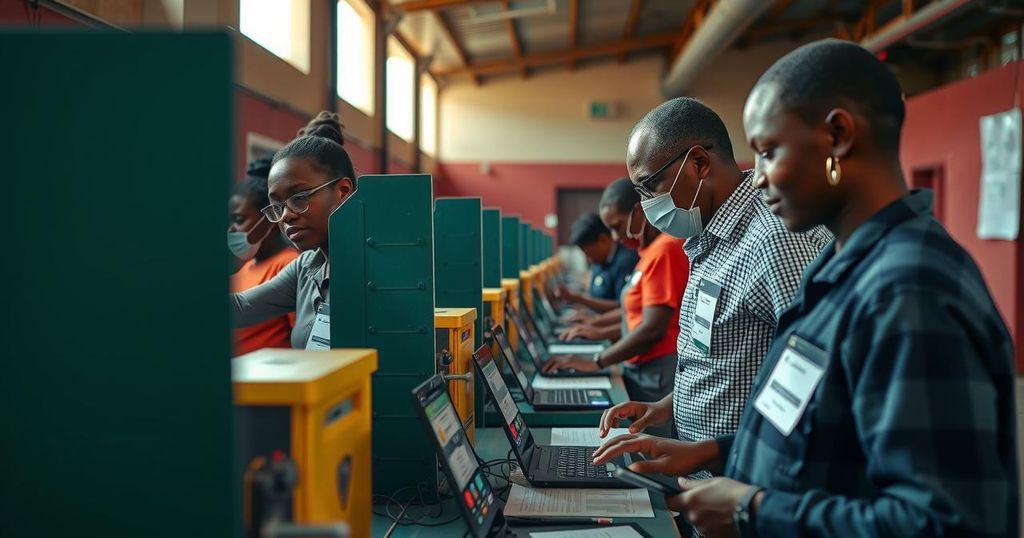Namibia Extends Election Voting Amid Allegations of Fraud and Ballot Paper Shortages
Voting in Namibia’s presidential elections has been extended into the weekend due to a shortage of ballot papers, raising allegations of fraud from the opposition. Vice President Netumbo Nandi-Ndaitwah is the SWAPO party’s candidate aiming to become the first female president amidst frustrations over economic conditions, particularly among the youth. The situation is reflective of broader democratic challenges facing Southern Africa.
Namibia’s electoral commission has announced that the deadline for voting in the country’s presidential elections has been extended due to logistical challenges, specifically a shortage of ballot papers. Originally set to conclude on Wednesday, the new cutoff has been moved to Saturday, provoking allegations of electoral fraud from the opposition party, Independent Patriots for Change. Meanwhile, Namibia’s Vice President, Netumbo Nandi-Ndaitwah, who is the candidate from the ruling SWAPO party, is vying to become the first female president of the nation amidst a backdrop of rising frustration among voters, particularly the youth, regarding economic opportunities and governance issues. Despite the cancellation of the original schedule, voters continue to face long queues at polling stations, questioning the electoral body’s assurances that ballot papers are en route.
In the larger regional context, Namibia finds itself juxtaposed against Mozambique, where allegations of vote rigging have led to violent unrest following the Frelimo party’s declared victory in recent elections. Therefore, Namibia’s situation not only reflects local tensions but also resonates within a broader narrative concerning democratic processes in Southern Africa.
Approximately 1.4 million Namibians are registered to vote, and the importance of these elections is underscored by the recent political climate, characterized by demands for change and accountability from long-standing governance. Although SWAPO has held power since independence in 1990, disenchantment regarding economic conditions may lead to a significant shift in voter behavior, paralleling trends observed elsewhere on the continent.
Namibia, a former German colony, gained independence from South Africa in 1990. The SWAPO party, which has dominated the political landscape for over three decades, played a pivotal role in the struggle for independence and has been criticized for its management of the country’s economic issues, particularly high unemployment rates impacting the youth. As the nation prepares for its presidential and parliamentary elections, the recent decision to extend voting due to logistical failings raises concerns about the integrity of the electoral process. This situation unfolds as neighboring Mozambique faces turmoil following allegations of electoral malpractice, illustrating widespread challenges to democratic practices across Southern Africa.
The extension of voting in Namibia, prompted by ballot paper shortages, has drawn significant criticism from opposition parties accusing the electoral commission of fraud. As Vice President Netumbo Nandi-Ndaitwah seeks to become the first female leader of Namibia, she faces a youthful electorate increasingly dissatisfied with economic opportunities. This moment in Namibian politics is crucial, particularly in light of the broader waves of change across the region, indicating a potential shift in governance priorities.
Original Source: apnews.com




Post Comment